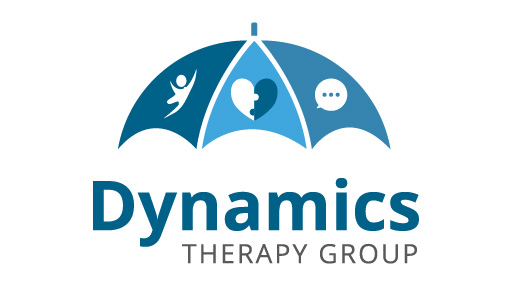
Cognitive assessment, more commonly known as IQ (Intelligence Quotient) testing, is an essential tool for evaluating an individual’s cognitive abilities. In Singapore, cognitive assessments are widely used for various purposes, from identifying gifted children to assessing individuals for specific job roles. In this comprehensive blog post, we will delve into the importance of cognitive assessment, how it works, and its applications in our society.
What is Cognitive Assessment?
Cognitive assessment refers to the process of measuring an individual’s cognitive functions, such as memory, reasoning, problem-solving, attention, and processing speed. It provides valuable insights into a person’s overall intellectual abilities and can help identify cognitive strengths and weaknesses. Cognitive assessments are typically conducted using standardized tests designed to measure various aspects of intelligence.
Why is Cognitive Assessment Important?
- Identifying Intellectual Giftedness: Cognitive assessments can help identify intellectually gifted children, enabling educators and parents to provide appropriate support, resources, and educational opportunities to nurture their talents.
- Diagnosing Learning Disabilities: Cognitive assessments can play a crucial role in diagnosing learning disabilities, such as dyslexia, dyscalculia and issues with written expression. When assessing for Specific Learning Disabilities (SLD) we typically combine the IQ test with achievement tests and check for discrepancies between Intelligence scores and Performance in academics. When there is a significant difference between those we may diagnose the child with SLD in either language or math. This will shed light on the exact areas where the child is having challenges and will provide a clear path for intervention and support both at school and via Educational Therapy services we provide at Dynamics.
- Diagnostic Power: it is crucial to use the IQ test when diagnosing disorders such as Attention Deficit Hyperactivity Disorder (ADHD), and Autism Spectrum Disorder (ASD). The cognitive assessment will allow the psychologist to ascertain the level of cognitive ability and what are the areas to work on. The results from the IQ test in combination with other specific gold standard tests are then compared to the DSM-5 Criteria to make an accurate diagnosis. Early diagnosis and intervention can significantly improve a child’s academic and social outcomes.
- Career Planning and Job Placement: Many organizations in Singapore use cognitive assessments to identify suitable candidates for specific roles or industries. By understanding an individual’s cognitive strengths and weaknesses, employers can make informed decisions about job placements and training opportunities.
- Monitoring Cognitive Development: Regular cognitive assessments can help track cognitive development in children, ensuring they receive the necessary support for healthy growth and development.
How Cognitive Assessment Works:
Cognitive assessments typically involve a series of standardized tests designed to evaluate different aspects of intelligence. These tests can be administered independently or as part of a broader battery of assessments. Some common types of cognitive assessments include:
- The Wechsler Battery of Intelligence Tests:
- Wechsler Intelligence Scale for Children (WISC): The WISC is a widely used cognitive assessment for children aged 6-16 years. It measures verbal, nonverbal, and overall cognitive abilities through various subtests, such as vocabulary, arithmetic, and block design.
- Wechsler Preschool and Primary Scale of Intelligence (WPPSI): the gold standard IQ test for preschoolers aged 2.5-7.5 years old. It is adapted for young children and assessing verbal comprehension, visual spatial, reasoning, working memory and processing speed.
- The Wechsler Adult Intelligence Scale (WAIS): the adult version of the IQ test for individuals aged 16-90 years old.
- Stanford-Binet Intelligence Scales: The Stanford-Binet test is another popular cognitive assessment tool that evaluates intelligence across a wide age range, from 2 to 85 years. It measures both fluid and crystallized intelligence, providing a comprehensive assessment of an individual’s cognitive abilities.
- Raven’s Progressive Matrices: This non-verbal test measures abstract reasoning and problem-solving abilities. It is suitable for individuals of all ages and is often used in multicultural settings as it does not rely on language proficiency.
Cognitive Assessment in Singapore:
In Singapore, cognitive assessments play a vital role in various aspects of society, including:
- Gifted Education Programme (GEP): The Ministry of Education (MOE) uses cognitive assessments to identify primary school students with exceptional intellectual potential. Selected students are then offered a place in the GEP, which provides a specialized curriculum designed to challenge and develop their intellectual abilities.
- Exam Accommodations: MOE (Ministry of Educaation), Cambridge (for IGCSE or IB exams) and universities recognize the fact that there are individual differences in students and allow for certain accommodations during exams for certain conditions. IQ test is crucial in the process of applying for these accommodations such as extra time, prompting, separated testing facilities etc.
- Special Needs Education: Cognitive assessments help identify students with special needs and tailor educational interventions accordingly. They may also be required for placements in Special education schools.
- Employment and Career Development: Many private and public organizations in Singapore use cognitive assessments as part of their recruitment and development processes.
Conclusion:
Cognitive assessment is a valuable tool for understanding an individual’s cognitive abilities and potential. In Singapore, it plays a crucial role in education, career development, and the identification of gifted individuals and those with learning disabilities. By recognizing and nurturing cognitive strengths and addressing weaknesses, we can create a society where everyone can reach their full potential.
At Dynamics we conduct a wide range of psychological assessments including Cognitive Assessments. Contact us for a consult to find out more.


